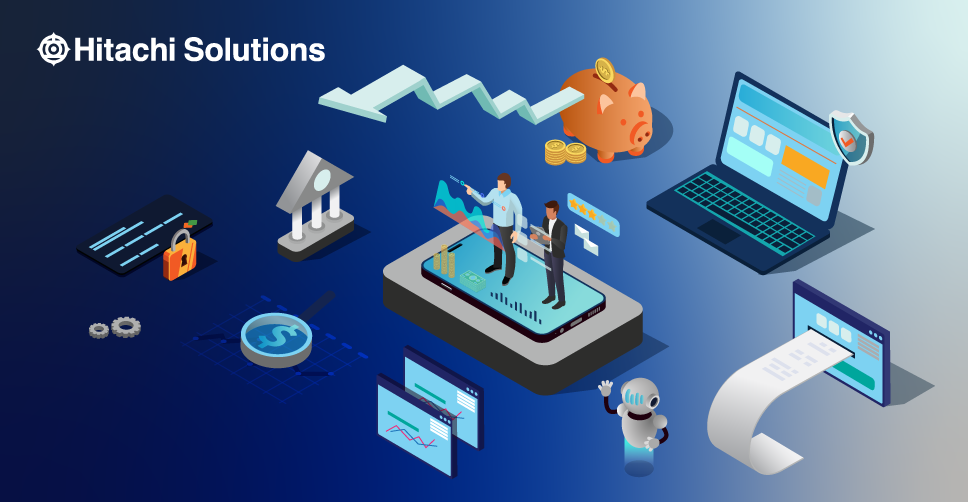Sales engagement platforms are witnessing significant trends and innovations that shape their future. With emerging technologies like AI, automation, and analytics, these platforms provide efficient and personalized interactions with customers, streamlining sales processes and boosting productivity.

Credit: www.salesforce.com
Current Trends In Sales Engagement Platforms
Sales engagement platforms are evolving and embracing new trends and innovations. From AI-powered automation to personalized customer experiences, these platforms are revolutionizing the way sales teams engage with prospects and close deals. Stay ahead of the game by keeping an eye on the latest advancements in this dynamic field.
Sales engagement platforms are continuously evolving to keep pace with the changing needs of sales teams. In this fast-paced technological era, understanding and adopting the latest trends is crucial to stay ahead of the competition. Let’s explore the current trends in sales engagement platforms and how they are reshaping the future of sales.
Adoption Of Artificial Intelligence (ai)
Artificial Intelligence (AI) has revolutionized various industries, and sales engagement platforms are no exception. Advances in AI technology have enabled sales teams to automate repetitive tasks, gather valuable insights, and personalize interactions with potential customers. AI-powered sales engagement platforms utilize data-driven algorithms to analyze customer preferences and behavior. This empowers sales representatives to provide personalized experiences and prioritize leads based on their likelihood of conversion. With AI, managing follow-ups, scheduling meetings, and nurturing leads has become more efficient than ever before.
Integration With Crm Systems
Customer Relationship Management (CRM) systems play a pivotal role in managing and tracking customer interactions. The integration of sales engagement platforms with CRM systems has emerged as a significant trend in streamlining sales processes. By integrating these two platforms, sales teams can seamlessly access prospect data, track customer interactions, and gain valuable insights through a centralized system. This integration eliminates the need for manual data entry, reduces errors, and enables automated workflows. Sales representatives can now focus more on building relationships and closing deals, rather than spending valuable time on administrative tasks.
Rise Of Personalization
In today’s era of information overload, personalized experiences hold greater significance for customers. Sales engagement platforms are leveraging advanced technologies to deliver personalized content and experiences to potential buyers. Through AI-driven analytics and real-time data, sales engagement platforms can tailor communication and content based on individual preferences, behaviors, and demographics. Personalization helps to establish trust, build meaningful connections with prospects, and increase conversion rates. Whether it’s personalized emails, targeted recommendations, or tailored marketing campaigns, sales engagement platforms are evolving to ensure each prospect feels valued and understood. In conclusion, the future of sales engagement platforms lies in harnessing AI capabilities, seamless integration with CRM systems, and delivering personalized experiences. Embracing these trends will empower sales teams to connect with potential customers more effectively, close deals efficiently, and navigate the ever-evolving sales landscape successfully. Stay ahead of the competition by leveraging these trends and adopting innovative sales engagement platforms that drive results.

Credit: joesgaragecoffee.com
Emerging Innovations In Sales Engagement Platforms
Sales engagement platforms have become an essential tool for businesses to streamline their sales processes and improve customer interactions. As technology continues to advance at a rapid pace, exciting emerging innovations are revolutionizing these platforms even further. In this article, we will explore three key innovations that are shaping the future of sales engagement platforms.
Predictive Analytics And Machine Learning
One of the most significant advancements in sales engagement platforms is the integration of predictive analytics and machine learning. These technologies enable businesses to gather and analyze vast amounts of data in real-time, allowing them to make data-driven decisions and anticipate customer needs.
Predictive analytics algorithms can analyze historical customer data and identify patterns, enabling sales teams to predict customer behavior and preferences accurately. Machine learning algorithms can then use this information to recommend the most appropriate sales strategy or product for each individual customer.
By leveraging predictive analytics and machine learning, sales engagement platforms can provide personalized and relevant content to customers, leading to higher engagement rates and increased sales conversions. Moreover, these technologies enable sales professionals to focus their efforts on the most promising leads, improving overall sales productivity.
Omnichannel Engagement
In today’s digital age, customers expect a seamless and consistent experience across multiple channels. Sales engagement platforms are now incorporating omnichannel engagement capabilities to meet these expectations.
Omnichannel engagement allows businesses to interact with customers across various channels, such as email, phone, social media, and live chat, ensuring a unified and cohesive customer experience. Sales teams can easily switch between channels and continue conversations seamlessly, regardless of the customer’s preferred communication method.
This integration of multiple channels not only provides convenience for customers but also allows businesses to gather valuable customer data from each interaction. By consolidating this data within the sales engagement platform, businesses can gain a comprehensive view of customer preferences and behaviors, enabling more personalized and effective sales engagements.
Virtual Reality (vr) And Augmented Reality (ar)
In recent years, virtual reality (VR) and augmented reality (AR) have gained significant traction in various industries. These technologies are now being harnessed within sales engagement platforms to enhance the sales process.
VR and AR can offer immersive and interactive experiences that enable customers to visualize products and services in a realistic and engaging way. For example, VR can simulate a virtual showroom where customers can explore different products, while AR can overlay virtual elements onto the real world, allowing customers to interact with products in their own environment.
By incorporating VR and AR into sales engagement platforms, businesses can deliver more impactful and persuasive sales presentations. These technologies enable customers to make more informed purchase decisions by experiencing products before buying, resulting in reduced return rates and increased customer satisfaction.
Implications For Sales Professionals
The future of sales engagement platforms brings with it exciting advancements that will have a profound impact on sales professionals. From enhanced efficiency and productivity to improved customer engagement, these trends and innovations will shape the way sales teams operate and interact with their customers. However, along with these developments come challenges that sales professionals must overcome in order to adapt and thrive in the changing landscape.
Enhanced Efficiency And Productivity
The advancements in sales engagement platforms are designed to optimize the way sales professionals work, ultimately leading to enhanced efficiency and productivity. With automation and artificial intelligence (AI) playing key roles, routine tasks such as data entry, lead nurturing, and follow-ups can be streamlined, allowing salespeople to focus on more strategic activities.
This increased efficiency translates into higher productivity, as sales professionals can dedicate their time to building customer relationships, closing deals, and generating revenue. By harnessing the power of automation, AI, and machine learning, sales engagement platforms enable sales teams to work smarter and achieve more in less time.
Improved Customer Engagement
The future of sales engagement platforms also holds great promise for improved customer engagement. These platforms provide sales professionals with valuable insights and analytics that enable them to better understand customer behavior, preferences, and needs.
By leveraging this data, sales professionals can personalize their approach, offer tailored solutions, and provide a more personalized buying experience. This level of customization and personalization strengthens customer relationships, increases customer satisfaction, and ultimately leads to higher conversion rates and customer loyalty.
Challenges And Adaptation
While the future of sales engagement platforms holds immense potential, it also presents challenges that sales professionals must navigate. One such challenge is the need to adapt to new technologies and tools. Salespeople must be open to learning and embracing these advancements in order to stay competitive and relevant in today’s fast-paced business landscape.
Another challenge is the potential shift in the sales process. With automation and AI taking over routine tasks, sales professionals need to continually hone their interpersonal and relationship-building skills. The ability to connect with customers on a personal level and provide value-added insights will remain essential in the face of technological advancements.
Furthermore, sales professionals must be mindful of striking the right balance between technology and human touch. While sales engagement platforms offer efficiency and automation, human interaction and emotional intelligence are still invaluable in building trust and fostering long-term customer relationships.
In conclusion, the future of sales engagement platforms brings forth exciting opportunities and challenges for sales professionals. By embracing enhanced efficiency and productivity, leveraging improved customer engagement, and adapting to the evolving landscape, sales professionals can position themselves for success in the ever-changing world of sales.

Credit: global.hitachi-solutions.com
Frequently Asked Questions Of The Future Of Sales Engagement Platforms: Trends And Innovations To Watch
What Are Sales Engagement Platforms?
Sales engagement platforms are tools that help sales teams streamline their sales processes, improve communication, and enhance customer relationships. These platforms provide features such as automated outreach, email tracking, and sales analytics, empowering sales reps to engage with prospects more effectively and close deals faster.
What Is The Difference Between Crm And Sales Engagement Platform?
CRM is a tool used for managing customer interactions and relationships, while a sales engagement platform focuses on improving the sales process by providing tools for outreach, tracking, and automation. CRM is more comprehensive, while sales engagement platforms are more specialized for sales teams.
How Big Is The Sales Engagement Platform Market?
The sales engagement platform market is substantial and rapidly growing. It encompasses various solutions that aid sales teams in their prospecting, communication, and customer relationship management efforts. This market holds great potential for businesses seeking to optimize their sales processes.
What Is An Engagement Platform?
An engagement platform is a tool that helps organizations interact and connect with their customers, employees, or partners. It allows for seamless communication, collaboration, and data sharing, fostering stronger relationships and improving overall engagement.
Conclusion
The future of sales engagement platforms is bright and promising. As technology continues to advance, we can expect to see more innovative features and tools that will revolutionize the way sales teams interact with customers. From AI-powered chatbots to personalized messaging, these platforms are evolving to provide a seamless and tailored experience for both buyers and sellers.
By staying up-to-date with the latest trends and innovations, sales professionals can gain a competitive edge in the ever-changing market.




